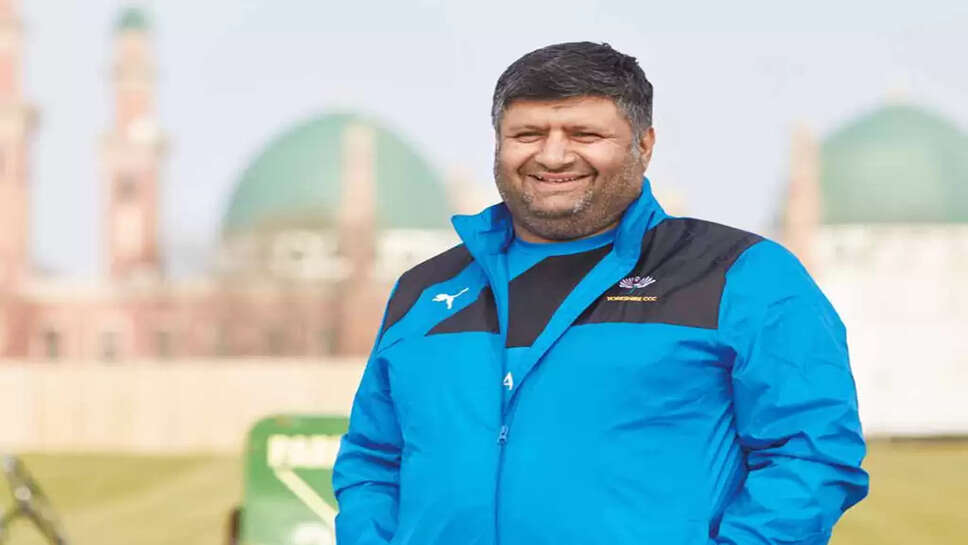Pakistan-Origin Administrator Champions South Asian Inclusion in Bradford Football

In the heart of Bradford, where multiculturalism and community sports often intertwine, Pakistan-origin administrator Nasa Hussain is emerging as a vocal and active champion against racism in football. Through her leadership role in the local Bradford League, Hussain has mobilized the South Asian community to confront discrimination and forge a lasting shift in attitudes within grassroots football. This is her story—and a glimpse into how sports can become a catalyst for social change.
1. From Community Roots to Football Fields
Nasa Hussain’s path is deeply rooted in Bradford’s vibrant Pakistani diaspora. Growing up surrounded by family and community figures who valued education and local cohesion, Hussain developed a strong sense of civic identity. With first-hand experiences of how sports bonds communities, she recognized that football could be an instrument for empowerment—but only if the field was a fair one.
As a volunteer football coach and administrator, she observed routine sidelining of South Asian players—not due to lack of talent, but due to prevailing stereotypes that skin color or religious identity hindered performance. Racist remarks, subtle or blatant, were tolerated. Determined to change this, Hussain took her efforts from club pitches to the broader governance of the Bradford League.
2. A League Transformed: New Policies, New Culture
Upon joining the Bradford League’s management committee, Hussain spearheaded several initiatives:
-
Zero-Tolerance Policy: She introduced a clear anti-racism code—discrimination of any kind would be penalized. This included bans, fines, and mandatory awareness sessions for teams found in violation.
-
Referee Training: In collaboration with the county FA, she initiated workshops for referees to recognize and act on racist incidents, whether by players or spectators—a step toward impartial officiating.
-
Reporting Mechanisms: With confidential hotlines and online forms, victims and witnesses gained formal channels to report incidents—countering a previous “ignore and move on” culture.
-
Community Dialogues: Regular roundtables brought together club officials, players, parents, and referees, creating open forums to exchange experiences and challenges around race and inclusion.
-
Role Model Showcases: Hussain arranged visits from South Asian professional and semi-professional athletes. Their success stories inspired young players and challenged prevailing stereotypes.
3. Confronting Everyday Racism
Despite these measures, change wasn’t easy. Hussain recalls several incidents:
-
A teenager reduced to tears after persistent racist taunts from opposing players—a situation that prompted urgent intervention and led to penalties.
-
Coaches defending racist remarks as “just banter”—often unaware of the real impact.
-
Hesitancy from some referees to act, citing lack of proof or fear of backlash.
Hussain worked directly with affected families, offering emotional support, liaising with clubs for sanctions, and ensuring affected players remained on their football journey. Her message was firm: “If it’s happening here, it stops here.”
4. Community Mobilization and Support
Real progress came from broad coalition-building:
-
Parents and Schools: Hussain engaged local schools and parent groups, running sessions on implicit bias, cultural heritage, and football’s role in identity formation.
-
Faith Institutions: Bradford mosques and religious centers backed league efforts—encouraging congregations to support anti-racism efforts during match days and beyond.
-
Local Media and Influencers: Coverage in community newspapers, radio, and social media sparked public reflection. Young influencers and players shared stories of inclusion and discrimination, giving voice to those affected.
-
Youth Empowerment: She fostered youth ambassadors—young players who pledged to uphold fairness and encourage inclusive behavior among teammates.
5. Measuring Impact
The results speak volumes:
-
Within a year, reported racist incidents dropped by nearly 70%, according to league statistics.
-
More South Asian referees joined the panels; their presence now helps ensure incidents are recognized and addressed.
-
League membership expanded—teams previously reluctant to join felt safer, leading to a more diverse competition line-up.
-
A positive shift in youth attitudes was noticeable. Players like 13-year-old Imran expressed, “I feel like I’m part of this game, not just playing.”
-
The initiative gained attention from other regional leagues, who have contacted Hussain for mentorship in adopting similar policies.
6. Challenges and Lasting Work
Still, hurdles remain:
-
Resistance to Change: Some entrenched coaches or fans still view anti-racism measures as unnecessary or performative, pushing back against disciplinary consequences.
-
Resource Limitations: With limited funding, sustaining workshops, hotlines, and public engagements stretches the league’s budget.
-
Cultural Complexity: Bradford’s diversity includes multiple ethnic groups. Building unity across different communities—South Asian, Eastern European, Caribbean—requires nuanced approaches.
-
Need for Broader Reach: Some remote or less formal football pockets remain out of reach, and targeting them remains a priority.
7. Looking Ahead
Hussain’s vision is multi-pronged:
-
Scale up the FairPlay Program across Yorkshire and nationwide, creating ambassador training curricula for administrators and referees.
-
Launch Educational Modules for Sunday leagues, school tournaments, and regional cups, giving grassroots sport a blueprint for racial equity.
-
Develop Mentorship Networks pairing young South Asian talent with professionals or respected amateurs.
-
Collaborate with Policing and Local Authorities for stadium awareness drives, especially focused on derby matches or high-profile games.
-
Secure public-sector grants and corporate sponsorship to support anti-discrimination infrastructure—training, advocacy campaigns and youth development initiatives.
8. A Local Impact, A National Narrative
By taking action in Bradford, Hussain is—quietly but steadily—reshaping how grassroots football understands and addresses racism. She proves that one individual, armed with policy insight, empathy, and conviction, can inspire systemic change. For many, she’s a role model—not only as an administrator, but as a community builder.
Her work resonates beyond the border of West Yorkshire. As other leagues adopt similar policies, Bradford’s evolution becomes a template. More importantly, it sends a message: for every senior figure, volunteer, or coach in South Asian communities, enforcing fairness isn’t just legal duty—it’s cultural pride.
9. Final Reflection
In Bradford, where football pulsates as a communal expression, Hussain’s campaign has made the game more inclusive—not just on paper, but in practice.
She sees sport as a mirror of society: “Changing the game changes the community.”
For South Asian families watching sons and daughters step onto the pitch, Hussain’s work promises more than a safe place to play. It offers belonging, dignity, and the hope that future generations can dream, score—and belong—without fear.
In the fight against racism, sometimes the biggest plays happen off the pitch. And in Bradford’s league pitches, Nasa Hussain is scoring goals that count far beyond the back of the net.
